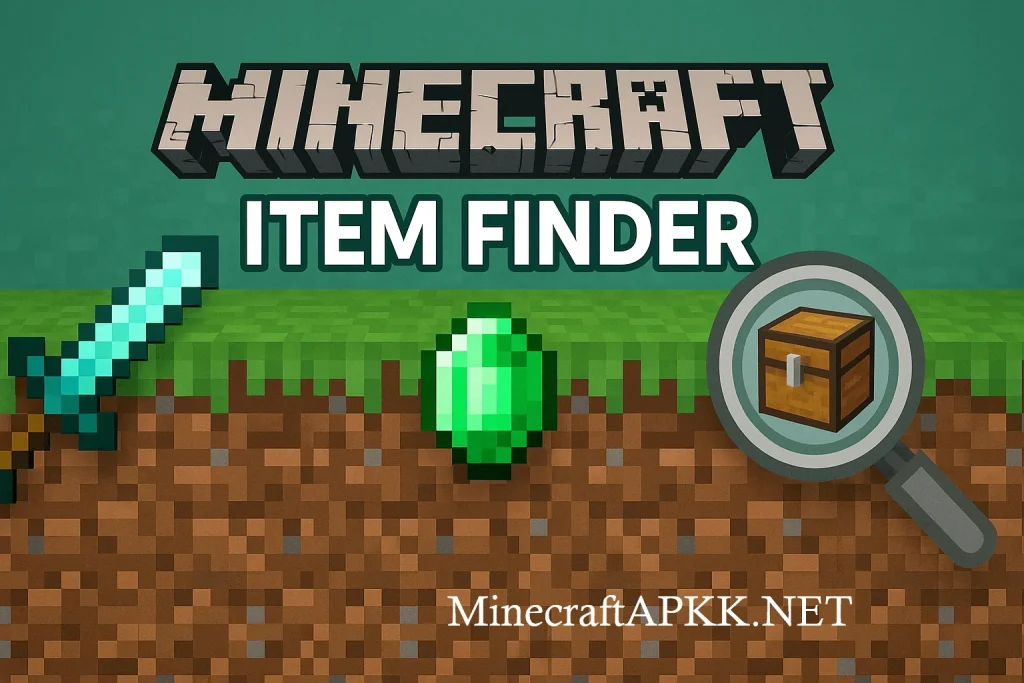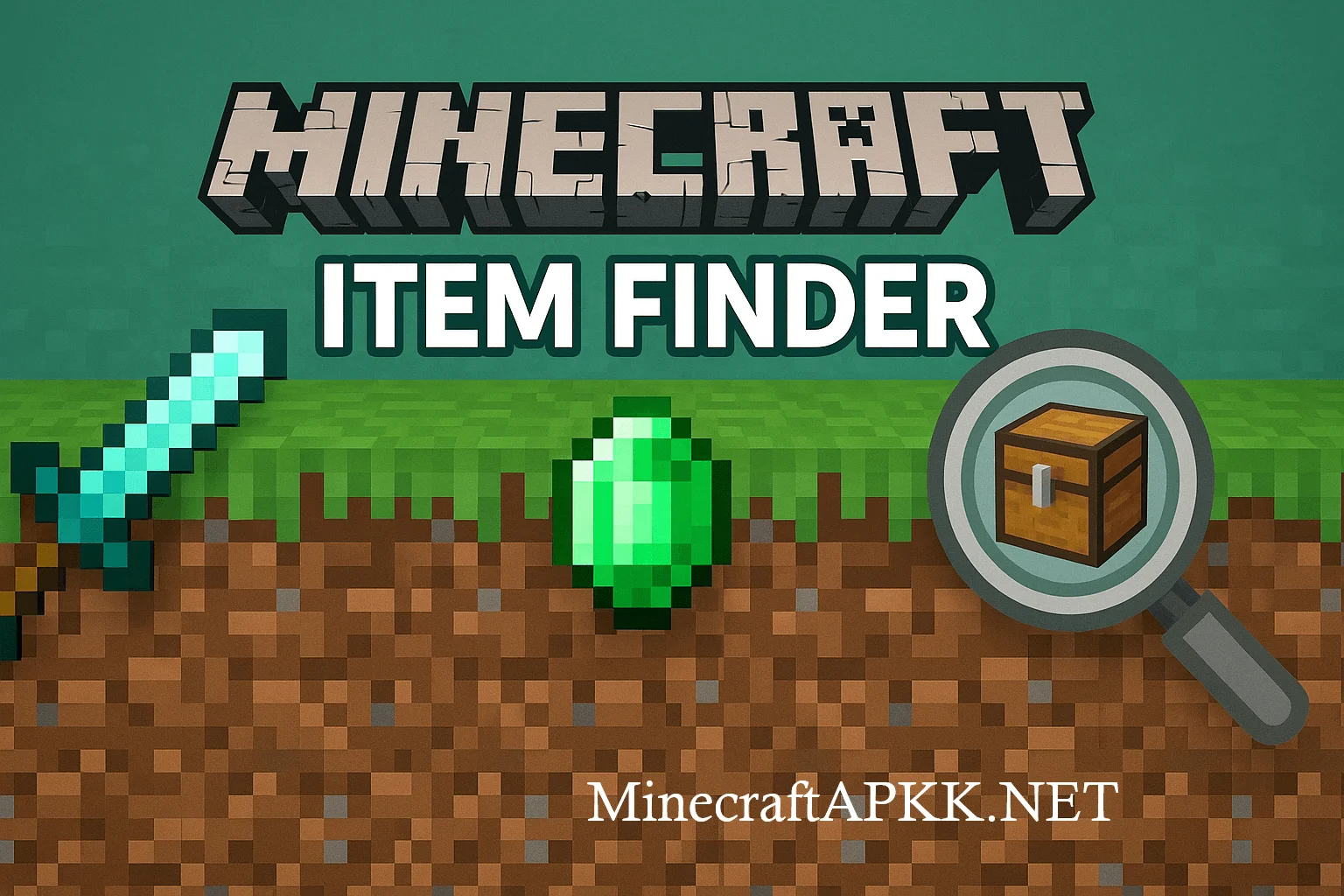Minecraft Item Finder The Ultimate Guide to Finding Any Item
As a Minecraft player with thousands of hours across survival, creative, and adventure modes, I understand the frustration of hunting for that one specific item you desperately need to complete your build or advance in the game. Whether you’re a newcomer struggling to find basic resources or a veteran searching for rare components, our Minecraft Item Finder tool is designed to make your gameplay smoother and more enjoyable.
Minecraft’s vast world contains over 1,000 unique items spread across different biomes, structures, and dimensions. Without proper guidance, finding what you need can feel like searching for a needle in a haystack. That’s why we’ve created this comprehensive resource – to help you spend less time searching and more time crafting and building.
Minecraft Item Finder
The Ultimate Minecraft Items Finder Tool
Our interactive tool above allows you to search for any Minecraft item and instantly discover everything you need to know about obtaining it. Simply type the item name or filter by category to find detailed information about crafting recipes, spawn locations, and usage tips.

How to Use the Item Finder
- Search bar: Type the name of any Minecraft item
- Category filter: Narrow your search by selecting a specific item type (blocks, tools, weapons, etc.)
- Rarity filter: Find items based on how common or rare they are in the game
The results display crafting recipes, spawn locations, and tips for efficient collection. Each item card is color-coded based on rarity, making it easy to identify valuable resources at a glance.
Explore our another tool: Minecraft Username Generator
Complete Minecraft Items Database
Our database covers every item from the latest Minecraft version, organized into intuitive categories to make finding what you need a breeze. Here’s what you’ll find:
Blocks
From basic dirt and stone to exotic nether blocks, our database includes information on hardness, blast resistance, and optimal tools for mining each block.
Tools & Weapons
Every tool and weapon in Minecraft is cataloged with details on durability, damage stats, and enchantability values. I’ve personally found diamond tools to be the sweet spot for efficiency before reaching the end-game, though netherite offers that extra edge if you’re willing to put in the work.
Food & Consumables
Details on hunger restoration, saturation values, and special effects for all edible items. Pro tip: Golden carrots might seem expensive, but they’re the most efficient food source for long mining expeditions due to their exceptional saturation.
Redstone Components
Comprehensive information on redstone items, including signal strength, delay times, and common usage scenarios. As someone who’s built everything from simple doors to complex calculators, I can attest that understanding these components is key to advanced gameplay.
Decorative Items
A complete collection of aesthetic blocks and items to enhance your builds, with crafting recipes and creative combination suggestions based on color palette and texture.
Finding Items by Game Mode
Survival Mode
In survival mode, resource gathering is a core gameplay element. Here are some strategies I’ve refined over years of gameplay:
Early Game (First Day)
Focus on wood, stone, coal, and iron. These basic resources form the foundation of your survival experience. I always prioritize finding at least 3 iron for a pickaxe before anything else.
Mid Game
By this stage, you should be hunting for diamonds and preparing for the Nether. Strip mining at Y-level 11 (pre-1.18) or Y-level -58 (post-1.18) provides the most efficient diamond yield in my experience.
Late Game
The End dimension and ancient cities contain some of the most valuable resources. I recommend fully enchanted diamond gear before attempting these challenges.
Creative Mode
Our item finder becomes particularly useful in creative mode when you’re searching for the perfect block to complete your build. The category filter helps narrow down decorative options based on color schemes and textures.
When working on massive builds, I often use the search function to quickly locate specialty blocks like different wood variants or colored concrete that matches my design palette.
Adventure Mode
For mapmakers and adventure mode players, knowing item properties is crucial for gameplay mechanics. Our tool provides information on which items work in adventure mode and how they interact with custom NBT tags.
Biome-Specific Item Guide
Different biomes contain unique resources. Here’s a quick reference guide to help you find biome-specific items:
- Desert: Sand, dead bushes, cacti, rabbit, and occasionally desert temples with valuable loot
- Jungle: Cocoa beans, melons, ocelots, parrots, and bamboo
- Ocean: Fish, kelp, sea pickles, and underwater ruins/shipwrecks
- Mountains: Emeralds (exclusively), goats, and powder snow
- Swamp: Slimes, lily pads, vines, and witch huts
From personal experience, I’ve found jungle biomes to be particularly valuable early game due to the abundance of food sources like melons, which can sustain you while you establish your first base.
Advanced Item Finding Techniques
Cave Exploration (Post-1.18)
The Cave and Cliffs update revolutionized underground exploration. Different cave biomes now contain specific resources:
- Lush Caves: Glow berries, moss blocks, and axolotls
- Dripstone Caves: Pointed dripstone and dripstone blocks
- Deep Dark: Sculk blocks and ancient cities with unique treasures
I’ve spent countless hours exploring cave systems, and I’d recommend always carrying a water bucket for safe descent into deep ravines – a lesson learned from several unfortunate falls!
Villager Trading
One of the most overlooked methods of acquiring items is through villager trading. Each profession offers unique trades that can be invaluable for obtaining otherwise rare items:
- Librarians: Enchanted books, name tags, and lanterns
- Fletchers: Arrows, bows, and crossbows
- Toolsmiths: Enchanted tools and bells
- Armorsmiths: Enchanted armor pieces
- Clerics: Ender pearls, glowstone, and redstone
Personally, I always prioritize establishing a villager trading hall in my survival worlds. The ability to get mending books on demand has saved me countless hours of resource gathering.
Seasonal and Limited Items
Some Minecraft items are only available during certain in-game events or have specific requirements:
- Dragon Egg: Only one per world, obtained after defeating the Ender Dragon
- Elytra: Found in end cities, essential for flight
- Heart of the Sea: Found in buried treasure chests, used for conduits
- Music Discs: Most require skeletons to kill creepers, with some found in structures
- Sponges: Primarily found in ocean monuments
Having hunted down every music disc multiple times, I can say with confidence that setting up a creeper/skeleton farm is far more efficient than relying on chance encounters!
Tips from a Veteran Player
After years of Minecraft exploration, I’ve developed some strategies that might help you:
- Use F3 for coordinates: When mining for specific ores, knowing your Y-level is crucial
- Create a “dump chest”: Keep a chest near your mining area for quick inventory management
- Carry a crafting table: Craft items on the go to maximize inventory space
- Bring an ender chest: Access your most valuable items from anywhere
- Mine around lava pools: Diamonds often spawn near lava at lower depths
I cannot stress enough how valuable an ender chest becomes once you’ve advanced in the game. I keep mine stocked with emergency supplies and building materials for unexpected adventures.
Frequently Asked Questions
Conclusion
Minecraft’s vast item collection is what makes the game endlessly engaging, but it can also be overwhelming without proper guidance. Our Item Finder tool aims to simplify this aspect of gameplay, allowing you to focus on what makes Minecraft special – creativity, exploration, and adventure.
Whether you’re a novice miner just learning the basics or a redstone engineer working on your next complex contraption, we hope this resource enhances your Minecraft experience. The joy of finally finding that rare item you’ve been hunting for is one of the game’s most satisfying moments – and we’re here to help make those moments happen more often.
Remember, the journey of finding items is part of what makes Minecraft special. Our tool isn’t meant to replace exploration but to enhance it by giving you the knowledge to explore more efficiently.
